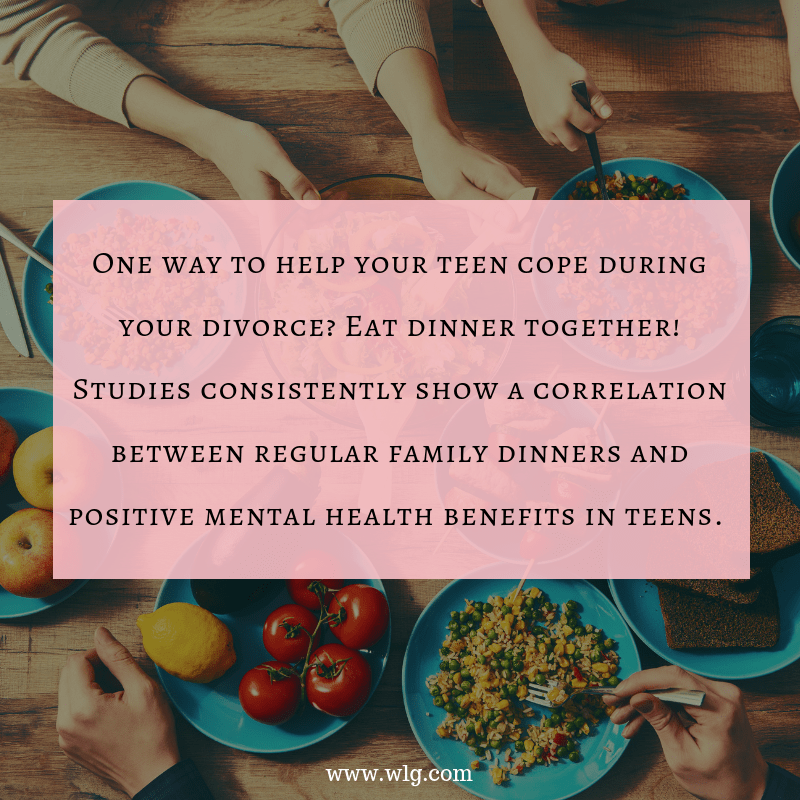5 Tips For Helping Teens Through Divorce

Divorcing when your child is a teenager poses unique challenges. In many ways, the two of you are in a similar spot — while you’re trying to establish a new life as a re-singled person, your teen is trying to discover their own solid identity and place in the world.
What can you do to support your child? Here are some tips for guiding your adolescent through divorce so he can transition successfully into adulthood.
Don’t turn your teen into your confidante. Looking to your teen to console you, confirm that your ex is a jerk, and otherwise act as your counselor, is inappropriate and will burden her emotionally. She has enough challenges trying to navigate hormonal fluctuations, increased school demands, and social pressures. If you find yourself “dumping” on your teen, find a therapist to help you cope so you can provide emotional support to your child.
Aim for consistent rules between households. Adolescents need to learn structure and a solid sense of right and wrong. They will have an easier time adjusting to divorce if you and your co-parent establish the same expectations and consequences in your homes. If you and your ex disagree on rules and discipline, visit a parenting plan coordinator or co-parenting therapist so you can provide consistency between homes.
Tailor your custody schedule for teens. Be aware that courts consider the preferences of teens 14 and older when determining physical custody. Teens can tolerate longer absences from parents than younger children. Depending on your child’s emotional maturity, he may need a “home base;” spending the majority of time in one home. Other popular timeshare arrangements for older children include the “2-2-5” and one week on, one week off. Try not to take your child’s preferences personally: her desire to spend more time with your co-parent may have less to do with you and more to do with proximity to school and friends.
Have regular family dinners. Studies consistently show a correlation between regular family dinners and positive mental health benefits in kids, including: improved academic performance, a lower risk of depression and high-risk behaviors such as drug use, violence, and sexual acting-out. The reasons? Teens are most likely to talk to their parents during dinner. This feeling of connection correlates with stable moods and a positive view of the future. In order to foster a sense of connection, be sure to be engaged during mealtime. Put away phones, turn off the TV, ask questions, and listen.
Remember that your teen is still a child. Some teenagers are stoic and don’t talk much. Others may appear more mature than their years. Remember that your teen is still a child and looks to you to provide structure and be a role model. They don’t want to know about your difficulty co-parenting, or other grown-up problems (including details about your sex life).
Above all, remember to practice self-care. If you’re not meeting your own basic needs (regular sleep, nutrition, exercise, and if necessary, mental health treatment) you won’t be able to meet the needs of your your teen. Taking care of yourself will help you navigate divorce challenges and teach your adolescent how to handle adversity with grace.
Read more:
Answering Older Children’s Questions About Divorce
Considering Older Kids’ Preferences When Determining Parenting Time Plans
5 Things To Say (Or Not To Say) When You Tell Your Kids About Your Divorce
Have questions about divorce? child custody? child support? Please contact us today to schedule your initial consultation with one of our experienced family law attorneys and get answers and a clear strategy for safeguarding your children. Call us at 888-888-0919 or please click the button below.
Schedule an Initial Consultation



